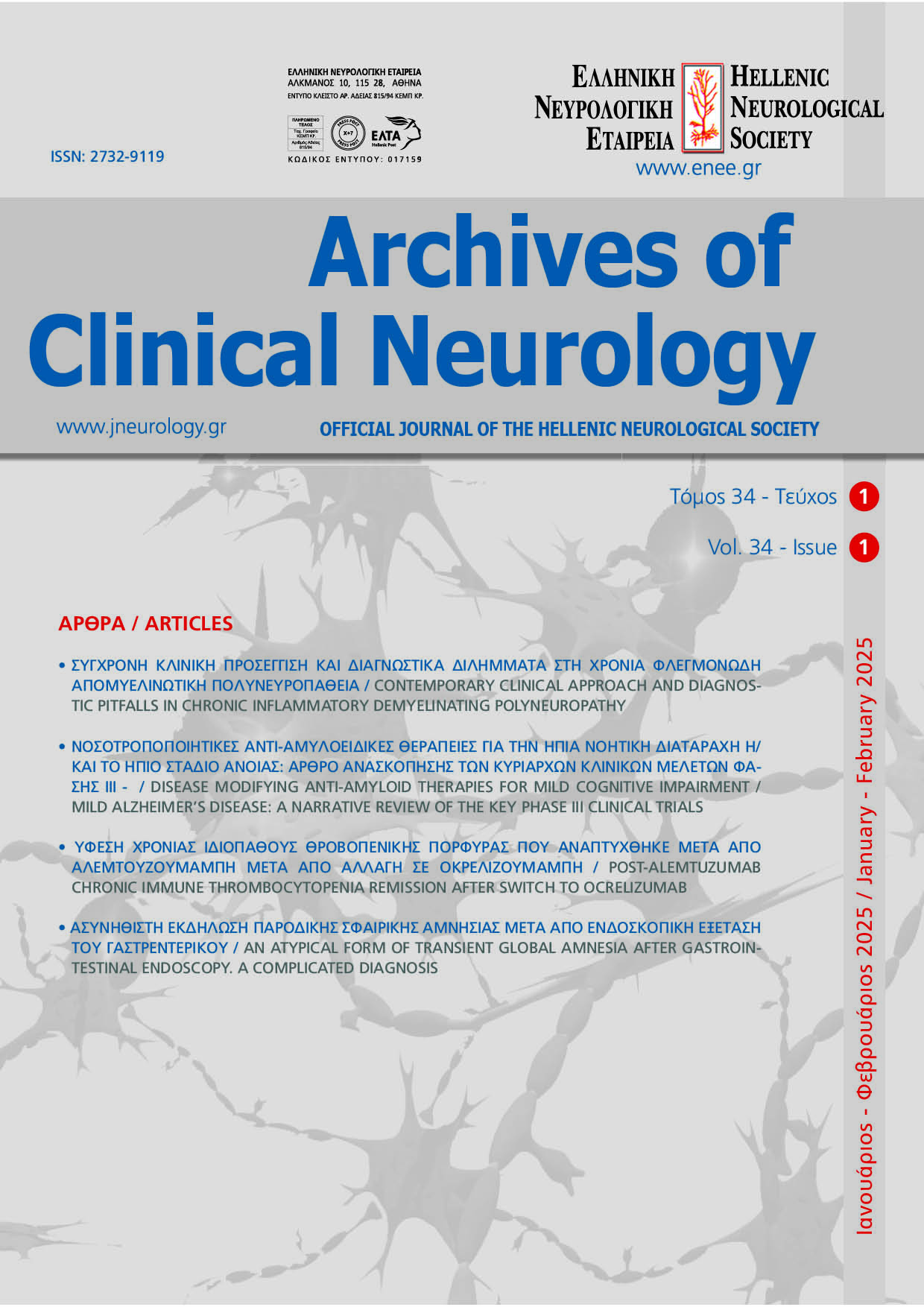POST-ALEMTUZUMAB CHRONIC IMMUNE THROMBOCYTOPENIA REMISSION AFTER SWITCH TO OCRELIZUMAB
Keywords:
Multiple sclerosis, alemtuzumab, immune thrombocytopenia, secondary autoimmunity, ocrelizumabAbstract
CD52 depletion with the monoclonal antibody alemtuzumab is a very effective treatment for multiple
sclerosis (MS) but unfortunately is also commonly associated with autoimmune manifestations. Usually these
affect thyroid function and can be mild or even subclinical; the rarer, however, immune thrombocytopenia
(ITP) can be severe, have a delayed onset and requires acute intervention; therefore, prolonged vigilance
is needed. Herein, we report two patients with MS treated with alemtuzumab, who developed chronic
ITP. Both cases suffered multiple relapses and proved refractory to conventional and non-immunological,
second-line ITP management. Interestingly, B-cell depletion therapy administrated for the management
of MS activity that had reappeared after alemtuzumab treatment resulted in sustained ITP remission. This
observation suggests that B-cell depletion therapy can have a beneficial effect on immune deregulation,
not only by eliminating MS activity but also secondary autoimmunity such as ITP; and consequently, that
the mechanism of post-alemtuzumab ITP is B cell-mediated.


